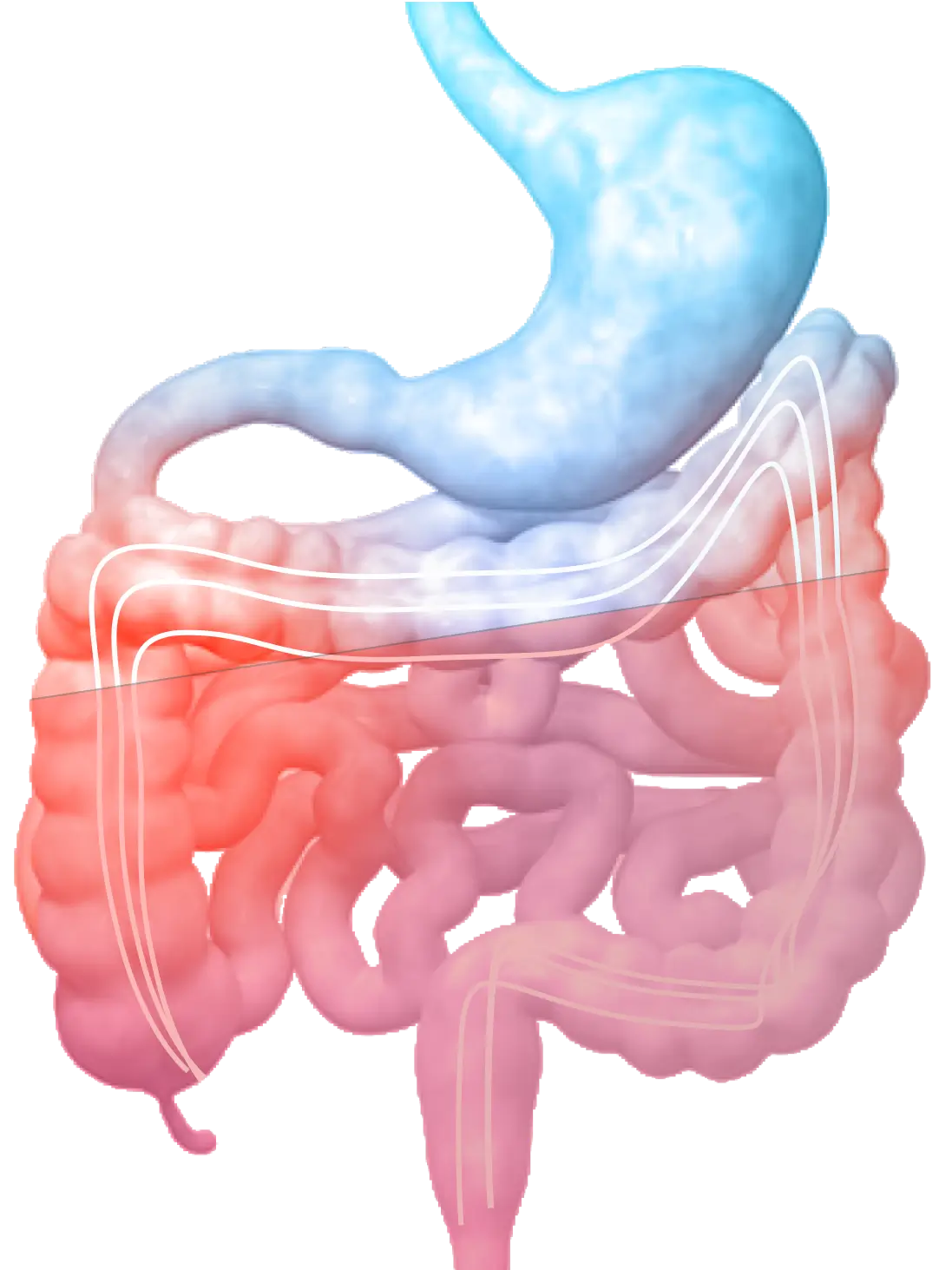Your gut is at the core
What is Gut Microbiome?
There are tens of trillions of microorganisms of species like bacteria, viruses, protozoa and fungi residing in our gut forming the gut microbiome
The Gut Microbiome is linked to the overall well-being of the body.
Gut and Digestion
During digestion, there are many substances which are not broken down by the stomach. These substances can include dietary fibers among other things. This becomes food for the bacteria present in our gut. The gut bacteria then ferment these undigested food releasing Short Chain Fatty Acids and gas. The main SCFAs produced are acetate, propionate and butyrate. Butyrate is an energy source for the gut and also maintains oxygen balance. Higher production of SCFAs is linked with lower diet induced obesity and reduced insulin resistance.
Gut and immunity
Did you know that 80% of the immune cells are present in the gut?
The Gut associated Lymphoid Tissue (GALT) is a major component of the immune function. This is crucial for detecting and combating pathogens. In our gut, the bacteria balance the immune response against pathogens. The bacteria make sure the immune response is right and not so violent to cause damage. The beneficial gut microbes can also produce antiviral proteins that can eliminate viral infections.
Gut and Sleep
The gut-brain axis is the communication pathway between our gut and brain. To understand the relation between sleep and gut, researchers studied the association of self-reported sleep quality on gut microbiome diversity in 28 young and healthy (no pre-existing health conditions) participants.
The study found that sleep quality did in fact impact the world of gut bacteria. Better self-reported sleep quality was positively associated with higher microbial diversity i.e. increased variety of bacterial strains in the gut. Poorer self-reported sleep was also associated with increased abundance of a strain of bacteria that has been reported to impact inflammation and metabolic dysfunction.
Low diversity of gut microbial species is a hallmark of gut microbiota dysbiosis, which can have various clinical implications on metabolic functioning, cognitive health and more.
Gut and Mental Health
Did you know that, all along our gut, exists a nervous system aka the enteric nervous system? This comes with an entire network of neurons and nerve cells (over 100 million of them in fact!), that help the gut sense, respond. This system is often called the ‘second brain’ of the body.
This enteric nervous system also communicates with our brain via the unique gut-brain axis. Together, they play a role in:
- Affecting mental state and emotions
- Influencing certain diseases
- And of course, helping carry out digestion smoothly
Here’s some examples of how we perceive the enteric system in the gut communicating with our brain:
- Anxiety before an exam that makes you go to the loo
- "Butterflies in your stomach” when nervous
- The “fight or flight” response during stressful situations which can slow down or fasten digestive processes
Pretty interesting right? Our gut is so much more complex than we think and we’re still understanding more about it each day.
Imbalances in the body lead to gut dysbiosis
Sleep Issues
Digestive Issues
Sleep Issues
Fatigue and Mood Disorders

Improved Digestion
Stronger Immune System
Better energy and mood levels
Better Sleep


